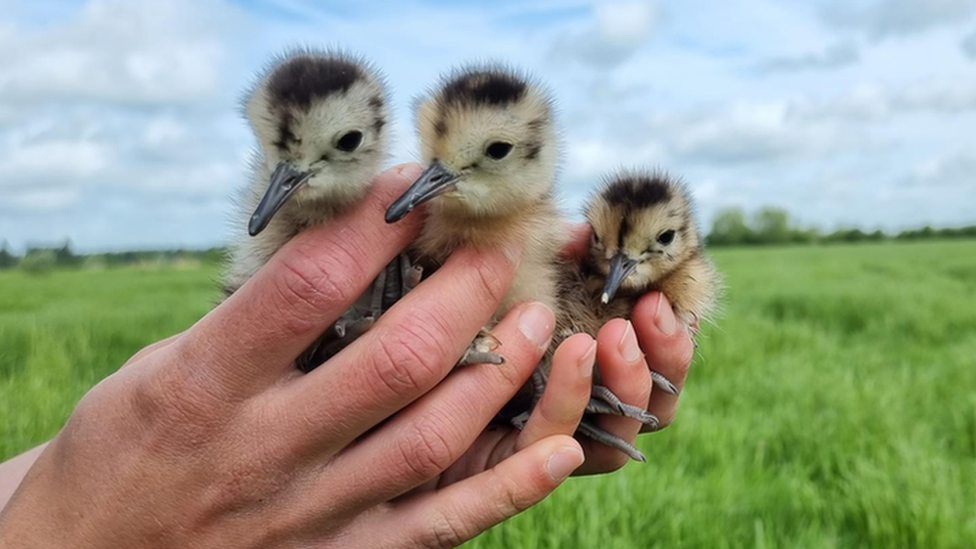Gloucester farmer allows land to flood to protect city
- Published
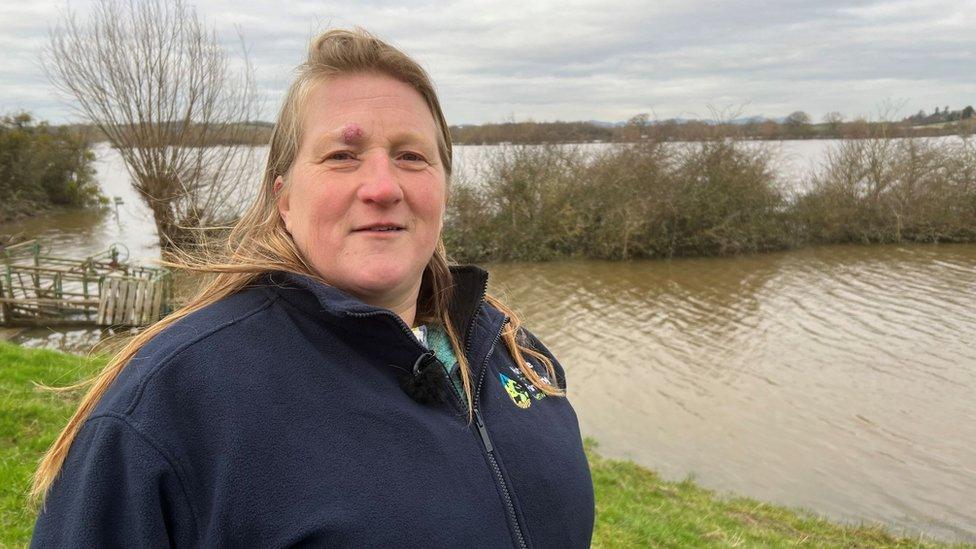
Debbie Wilkins has converted arable land that floods into grass and hay meadows
A farmer is allowing a third of her land to flood to protect the city downstream.
Debbie Wilkins, who owns Norton Court Farm near Gloucester, receives a government grant to set aside 300 acres (121 hectares) as a floodplain.
She is one of hundreds of farmers around the country who now let the floodplains "do their job".
"It takes the pressure off the river and protects the properties below us," Ms Wilkins explained.
Instead of building barriers to try to keep the water out, she keeps the floodplain land as grass and hay, which won't be destroyed like arable crops.
She said the pastures that are allowed to flood have "brilliant wildlife" and are "species rich".
"Also we're producing food on it. They're working quite hard, these fields."
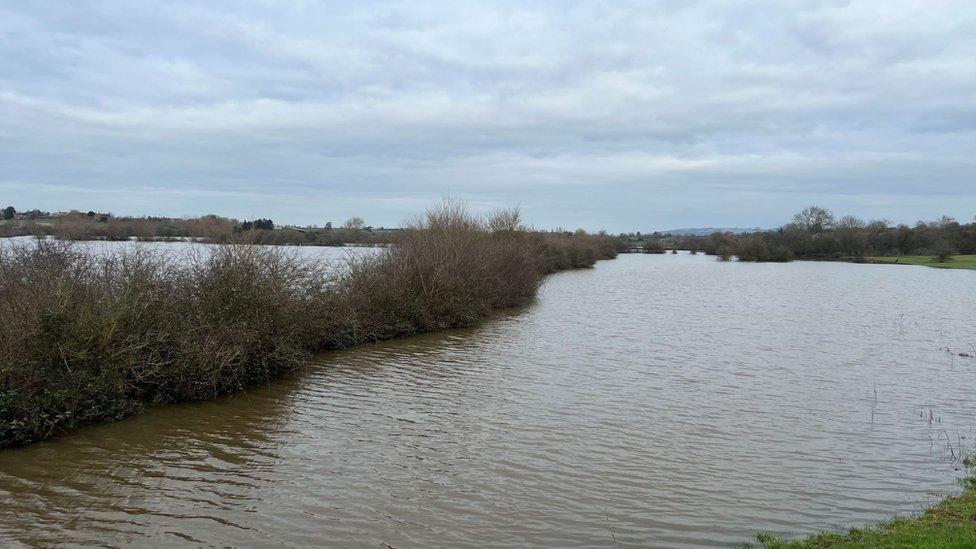
The flood water on Ms Wilkins' land will take about a month to go down
The government's Environment Land Management scheme offers incentives to farmers to boost sustainable practices.
Prof Nicola Cannon from the Royal Agricultural University said: "I think many farmers are thinking very carefully about making their farms more resilient."
"We're seeing more freak weather events, including high levels of rainfall causing flooding."
She explained farmers were considering "how they manage their land" to minimise risk but also the "opportunities" to help communities downstream.
Ms Wilkins grew up on the farm she now runs and remembers as a child they had a "proper flood" every four or five years.
"And now we're getting two or three a year," she added.
She said they farm a third of the land in a more "gentle way", allowing the floodplains she usually uses for cattle grazing "to do their job".
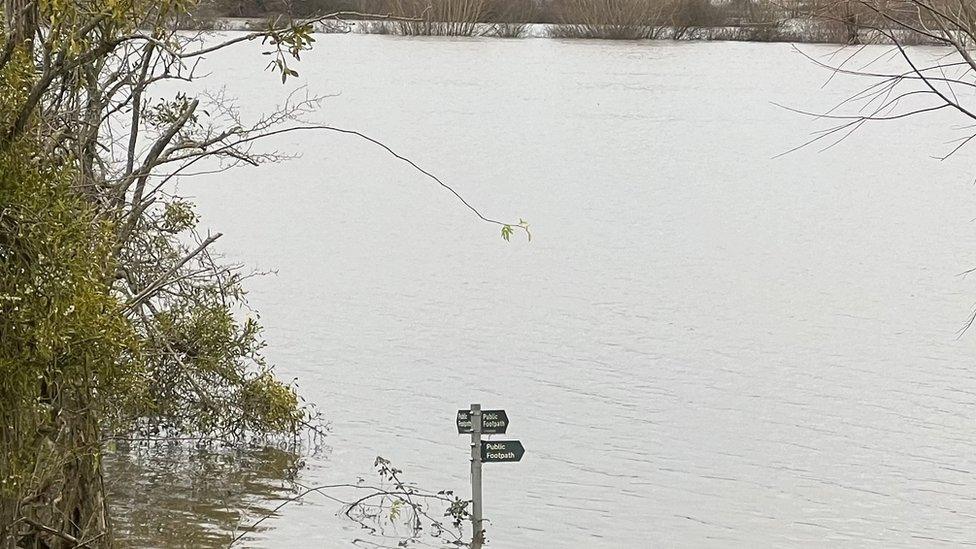
Norton Court Farm has flooded for the third time this winter
Ms Wilkins said, however, that it does cause them some "hassle", including have to move the cattle very quickly, as well as there being a "tide line of rubbish" in the water.
She explained the plants underneath the flood waters had "been there a long time and they are not your traditional high-yielding ryegrass".
"These are floodplain meadows, species rich. They have evolved to cope with being flooded and so they'll come back in the summer.
"We'll have lovely fields full of flowers and grass, which we'll cut for hay and afterwards the cattle will come and graze them. That's the cycle."
Prof Cannon explained this method was easier for livestock farmers, who can move their stock, rather than those growing crops.
She explained the residual silt from flood water leaves some "fertility" behind, which can boost grass growth and biodiversity.
The professor of agriculture said flooded farmland was a "very traditional practice", adding: "It's only in more recent times that we've seen this land converted to cropping where it's been so much more vulnerable to erosion."
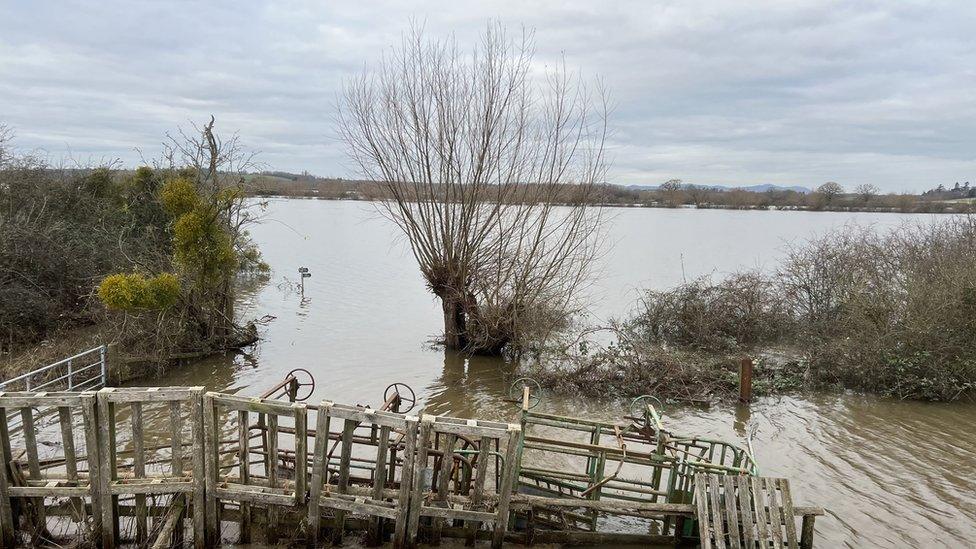
The NFU wants farmers to be paid fairly when they set aside land for flooding
Ms Wilkins, like many other farmers, has other fields with arable crops that have also flooded, at a cost of thousands of pounds.
The national Farmer's Union (NFU) says farmers who are expected to let fields of crops flood to protect towns should be compensated.
Zoe Moore, an environmental policy adviser specialising in flood management at the NFU, said many farms were still recovering from Storm Gerrit and Storm Babet when Storm Henk hit last week.
"So this has, sort of, been a double hit for them. Lots will have recently planted crops that are now going to be rotting in the ground or not had the chance to grow.
"There's a lot of uncertainty and a lot of stress and upset."

Follow BBC West on Facebook, external, X, external and Instagram, external. Send your story ideas to: bristol@bbc.co.uk , external
- Published4 January 2024
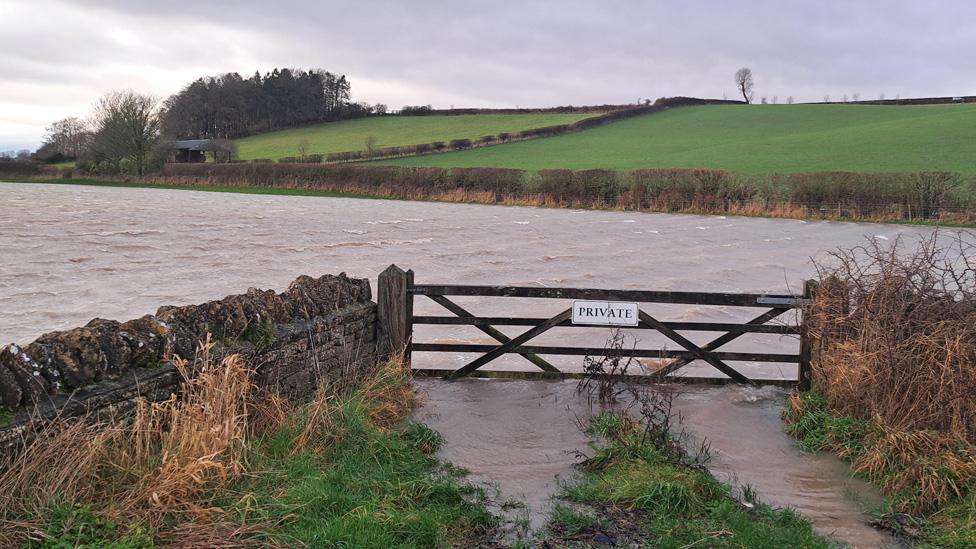
- Published6 January 2024
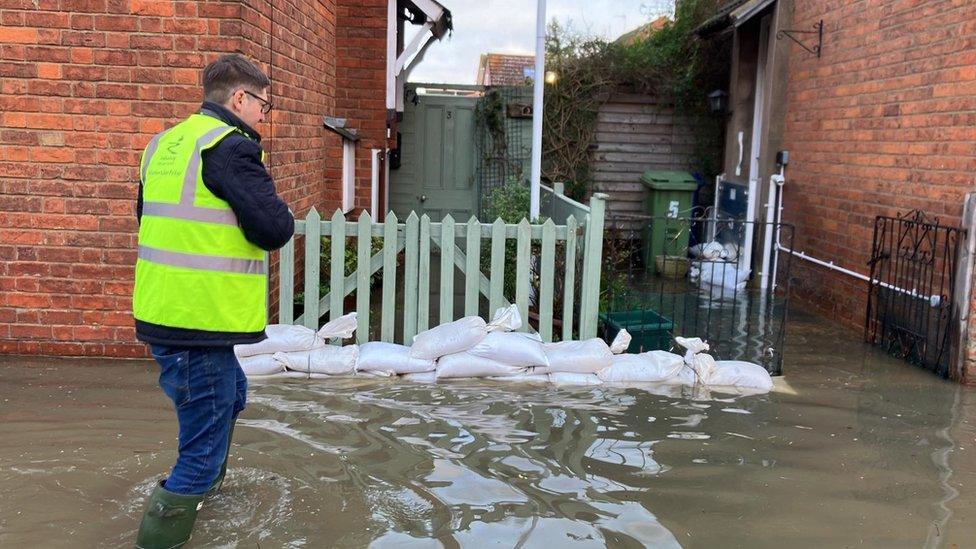
- Published3 July 2023
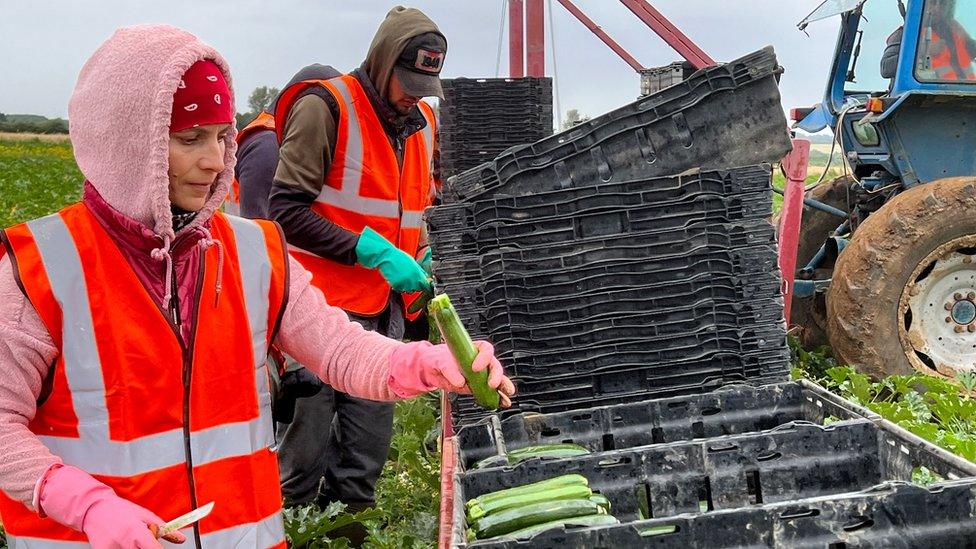
- Published30 June 2022
